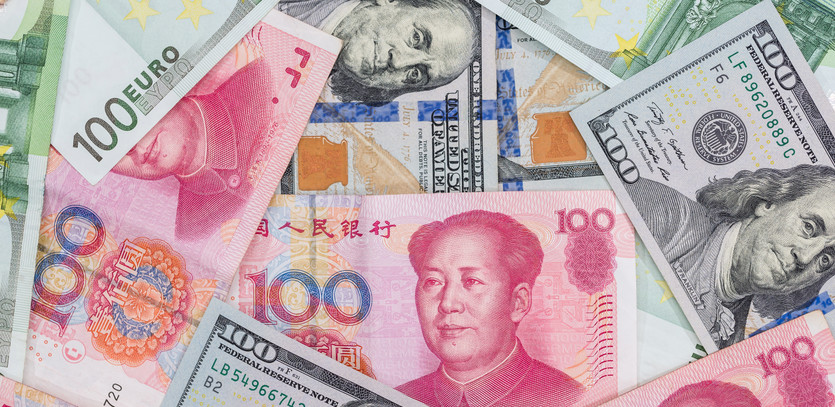For a multitude of individuals, investing in foreign currency often feels like a captivating but risky adventure. The foreign exchange (referred to as "Forex") marketplace is predominantly governed by banking institutions and institutional investors. However, the proliferation of online brokerage platforms and the availability of margin-trading accounts have made forex trading an achievable venture for the average individual.
To make the most of foreign currency investments, it's crucial to understand the advantages, potential pitfalls, and effective investment strategies.
Understanding the Benefits and Risks of Foreign Currency Investment
Before plunging into foreign currency investment, there are numerous aspects to consider. Being the world's most liquid market, forex possesses unique risks that differentiate it from traditional equity and bond markets. A key factor is the high leverage, which can lead to substantial volatility and the potential for significant losses.
Here's a glance at the main benefits of foreign currency investment:
- Liquidity: The forex market commands a whopping daily trading volume of over $6 trillion.
- Diversification: Foreign exchange presents a diversification option that mitigates the inherent risks of currency trading through exchange-traded funds (ETFs).
- Extended Trading Hours: Forex operates round the clock from Monday to Friday, providing more trading opportunities than typical equity, bond, or futures markets.
- Minimal Costs: Forex trading usually avoids commission charges, and the bid-ask spread is typically narrower than that of equities.
On the flip side, here are the primary risks associated with foreign currency investment:
- High Leverage: The forex market operates with minute incremental movements, necessitating high leverage through margins, which could be a risk factor for investors.
- High Volatility: The forex market is notoriously prone to volatility due to factors like economic data releases, central bank interventions, and more.
To navigate these risks and enhance long-term returns, it's essential to apply sound risk-management techniques. Moreover, maintaining a robust capital reserve is crucial to circumvent the risks associated with leveraging foreign capital.
Effortless Investing through ETFs
Exchange-traded funds (ETFs) present a simplified approach to foreign currency investment for those without specialized knowledge. These funds create and manage a portfolio of currencies on investors' behalf, utilizing financial instruments such as swaps and futures contracts.
ETFs offer the advantage of lower leverage-related risk, and they are available for purchase through conventional stockbrokers, negating the need for a foreign exchange broker.
Prominent ETF providers, such as CurrencyShares and WisdomTree, offer investment options tailored to foreign currency. Meanwhile, entities like ProShares provide opportunities for leveraged bets on various popular currencies. As always, prior to investing, carefully review an ETF's prospectus to understand any associated fees and vital information.
Several popular long ETFs that invest in foreign currencies include:
- CurrencyShares Canadian Dollar Trust (FXC)
- CurrencyShares Swiss Franc Trust (FXF)
- CurrencyShares Australian Dollar Trust (FXA)
- WisdomTree Dreyfus Emerging Currency Fund (CEW)
- WisdomTree Dreyfus Chinese Yuan Strategy Fund (CYB)
You can also engage in short selling of foreign currencies via ETFs such as:
- ProShares UltraShort Euro (EUO)
- ProShares UltraShort Yen (YCS)
Direct Foreign Currency Investment
Investors also have the option to directly purchase and sell individual currencies on margin through a forex brokerage. With an initial deposit as low as $50, investors can buy currencies with margin levels ranging from 50 to 1. It's important to remember, however, that higher leverage can lead to increased volatility and the possibility of larger losses.
Choosing a reputable forex broker is a must. The forex market lacks the stringent regulations found in U.S. equity markets, so beware of foreign brokers not regulated by global authorities.
Currency Hedging for Asset Protection
Investors may turn to currency hedging as an effective strategy to shield their assets from potential losses due to currency fluctuations. This approach can be particularly beneficial when investing in foreign stocks. For instance, an investor buying stock in European companies might simultaneously short sell euros against U.S. dollars, serving as a protective measure against any possible depreciation of the euro.
However, it's vital to note that currency hedging is a complex strategy that should be employed with a thorough understanding of the market dynamics. Also, keep in mind that hedging can limit the benefits of diversification. By hedging against a specific currency, you potentially eliminate the gains that might accrue from a favorable move in that currency.
There are several popular currency-hedged funds on the market that investors can consider:
- WisdomTree Europe Hedged Equity Fund (HEDJ): This fund aims to provide exposure to European equities while mitigating the risk of fluctuations between the value of the euro and the U.S. dollar.
- WisdomTree Japan Hedged Equity Fund (DXJ): This fund offers exposure to Japanese equities, concurrently hedging against the potential decline in the value of the yen against the U.S. dollar.
- iShares Currency Hedged MSCI EAFE ETF (HEFA): This fund provides investors with exposure to developed market equities, excluding the U.S. and Canada, while mitigating foreign exchange risk between those currencies and the U.S. dollar.
Making Your Choice
When embarking on the journey of foreign currency investment, the choice of investment approach primarily hinges on your individual investment goals, risk tolerance, and market knowledge.
If you prefer a simpler and straightforward method, consider investing via ETFs. These funds can be easily traded with traditional stock brokers, and they present fewer risks related to leverage. They can also offer a diversified exposure to a range of currencies, reducing the risk associated with investing in a single currency.
On the other hand, if you have a deeper understanding of the forex market and are willing to take on more risk for potentially higher returns, direct investment through a forex brokerage account might be a suitable option. In this method, you'll buy and sell currencies directly using margin, giving you more control and exposure to currency movements.
Each method has its pros and cons. ETFs, for instance, while simple and relatively safer, may offer lower returns compared to direct forex trading. Direct trading, while potentially profitable, comes with higher risk and requires a significant understanding of the forex market.
The key lies in understanding your financial goals, your ability to tolerate risk, and the time you can devote to managing your investments. Always remember, careful consideration of these factors is paramount in making sound investment decisions.
Educating yourself about the market, keeping abreast of global financial news, and developing sound risk management strategies can also go a long way in ensuring that your foreign currency investment journey is a successful one. Regardless of your chosen strategy, remember that foreign currency investment is not a guaranteed way to make profits; it requires knowledge, skills, and a mindful approach to risk management.
Can banks handle my foreign currency exchange?
While banks can exchange foreign currency for you, they are unlikely to offer leverage unless they provide forex trading accounts. Essentially, you can swap cash for foreign currency at a bank, but the opportunities to control prices and leverage as a trader or investor may be limited.
What is a foreign exchange rate?
The foreign exchange rate is the price at which one currency can be exchanged for another. For instance, if $1.35 worth of U.S. dollars can be purchased with one British pound (GBP), the exchange rate is 1.35. Exchange rates typically encompass the spread and any fees charged by the exchange for the transaction. Traders often refer to these as "pairs" rather than "rates." For example, they might say, "The GBP/USD pair is 1.35."





